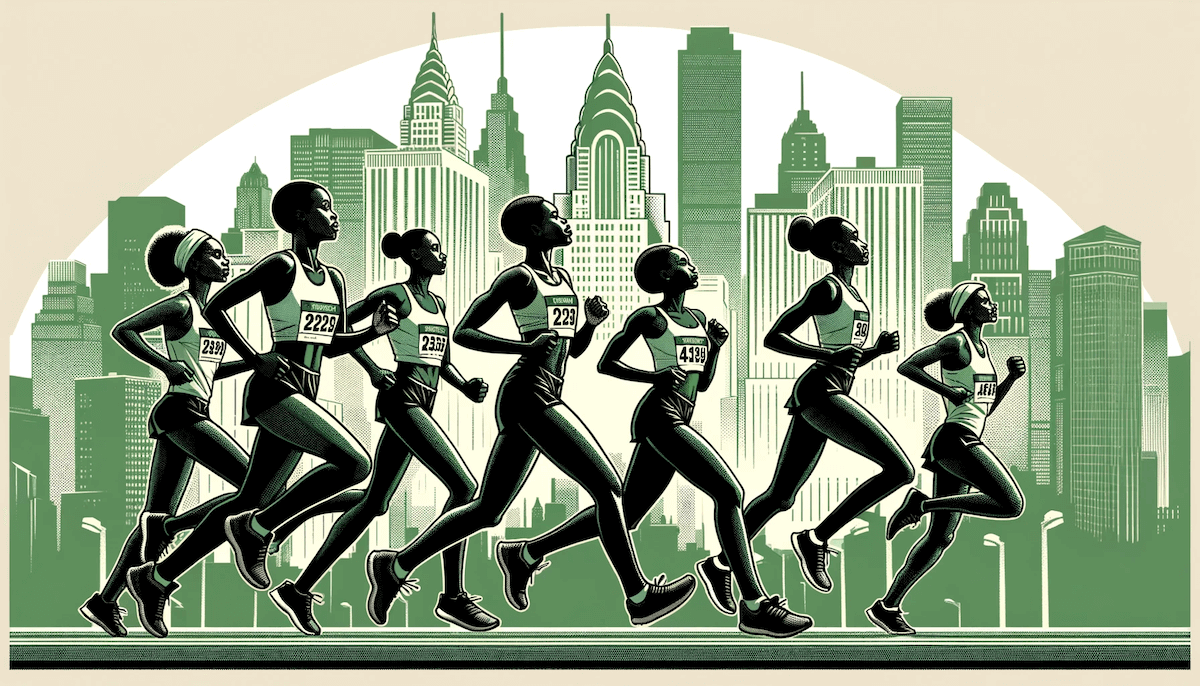The first British woman over the line at the 2024 London marathon in April was 11th-placed Mhairi Maclennan. Ahead of her were 10 African runners: 5 from Kenya, including winner Peres Jepchirchir, and 5 from Ethiopia.
This wasn’t entirely unexpected, given that 82 of the world’s 100 fastest female runners come from either of those two countries.
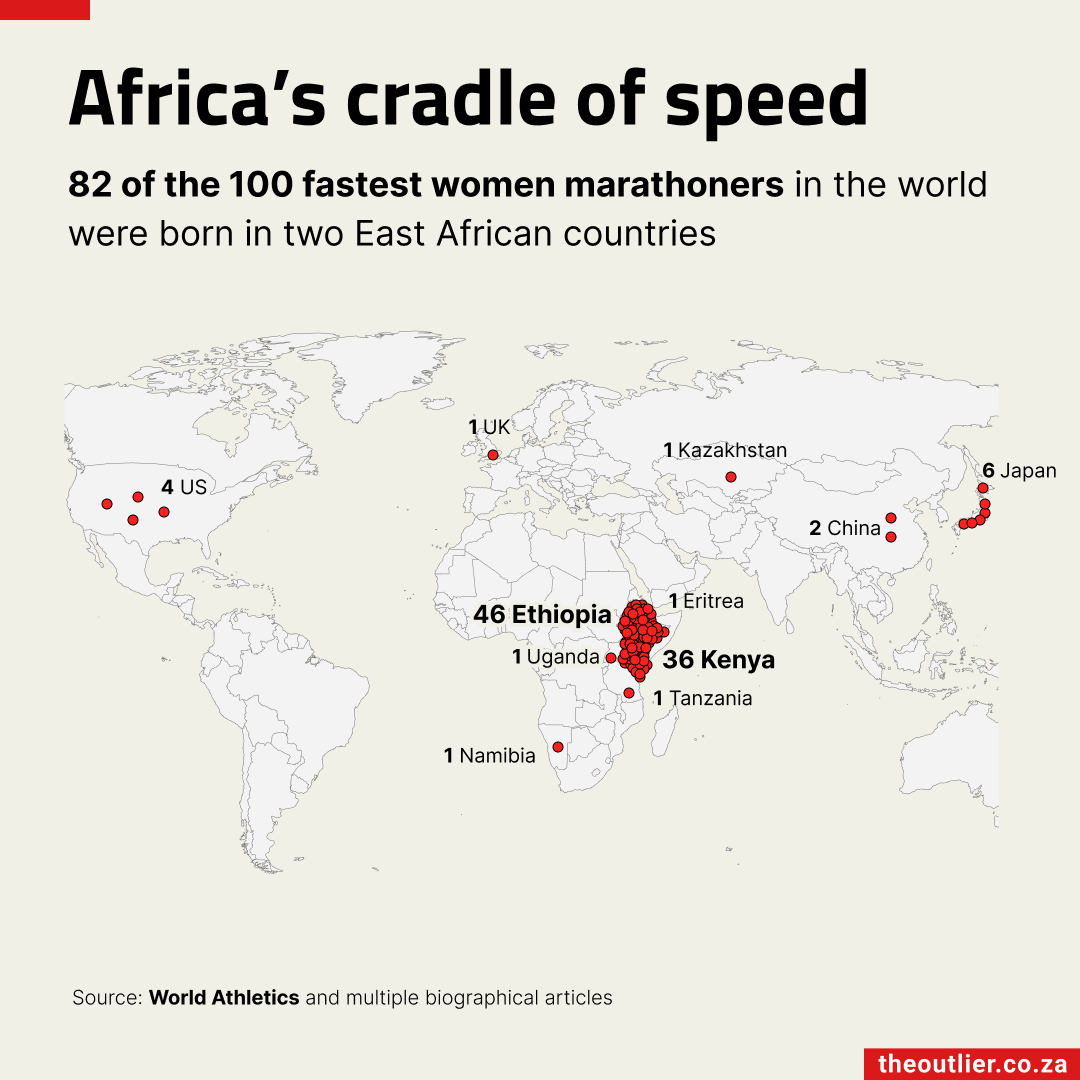
Many of these elite East African runners were born in particular regions in their home countries. The Rift Valley in Kenya, for example, has produced some of the greatest middle- and long-distance runners.
Tegla Loroupe, the first African female athlete to set a world marathon record, is Kenyan, as is Faith Kipyegon, who became the first woman to break the 3.50 barrier for the 1,500m in June last year. Just a week later, she set a world record for the 5,000m.
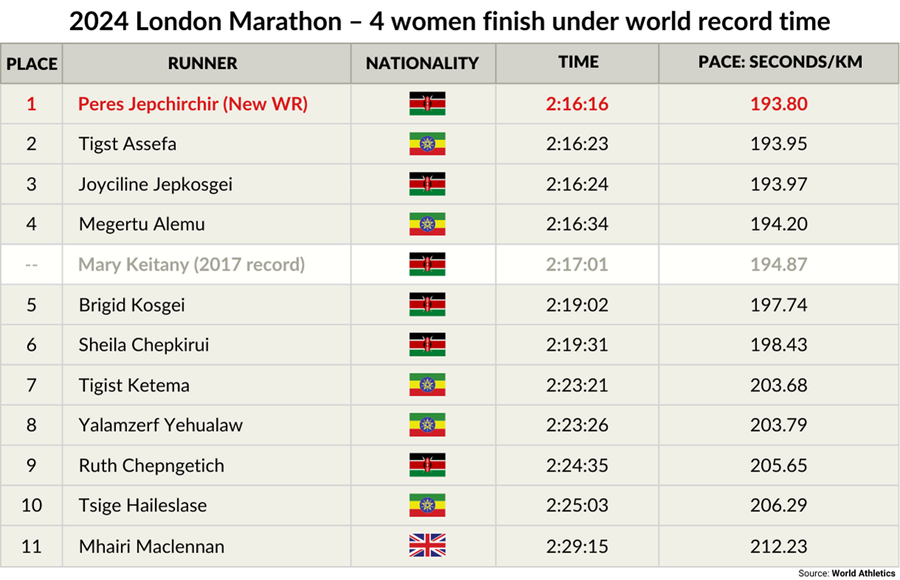
Researchers say a combination of factors come together to make the people living in the Rift Valley such strong distance runners, including high-intensity training at high altitude, running from a young age, a traditional starch-heavy diet as well as a strong motivation to make good money.
Olympic champion Jepchirchir won £44,000 when she set the new record for a women’s-only marathon in London with 2:16:16. She was followed by 3 of the fastest women in history: Ethiopians Tigst Assefa, the world mixed-marathon record-holder, and Megertu Alemu, last year’s runner-up, as well as fellow Kenyan Joyciline Jepkosgei, who won in 2021.
All four finished inside 2:17:01, the previous record time set in 2017 by Mary Keitany, who is Kenyan.
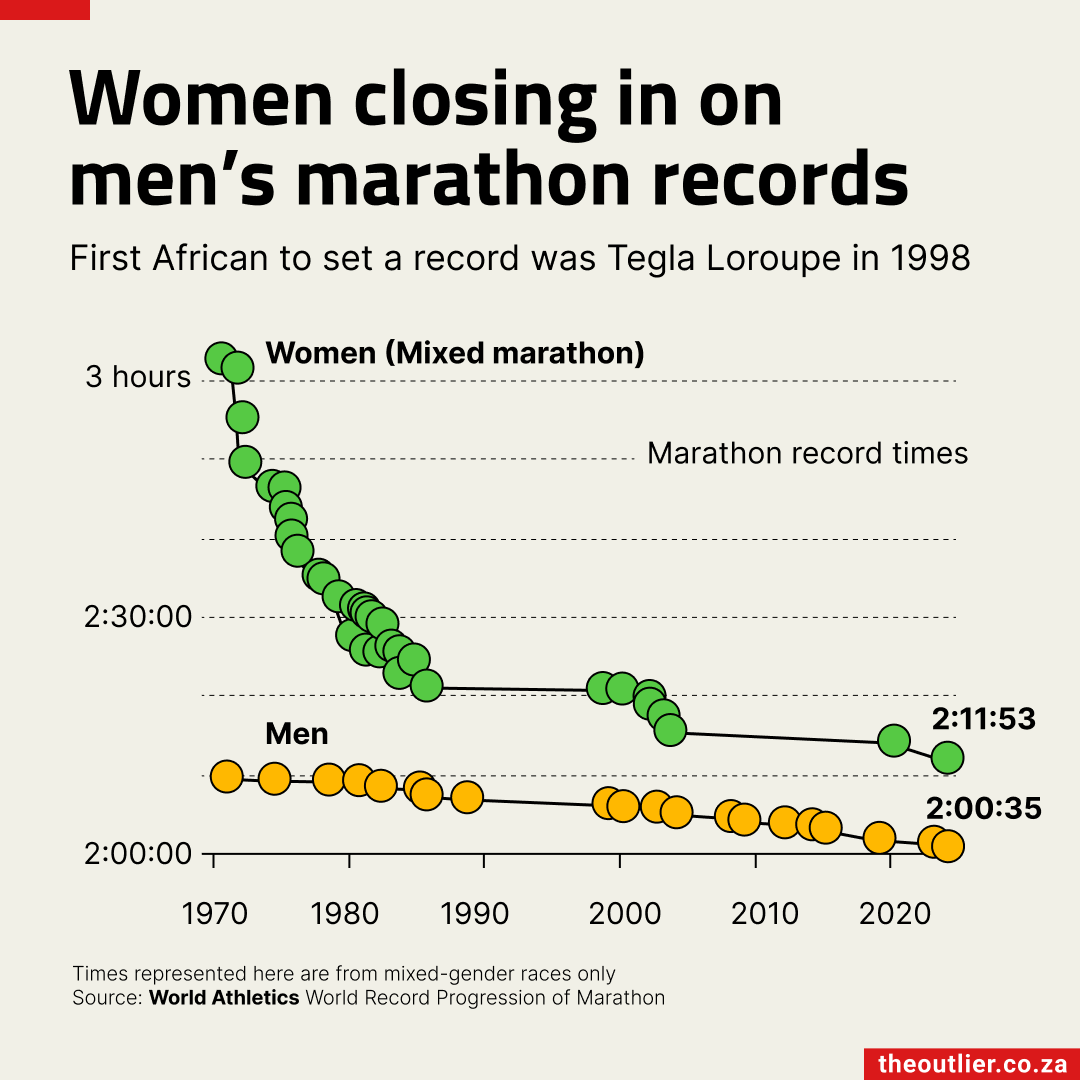
Mixed results
World No 1 Tigst Assefa holds the record for a mixed marathon (2:11:53), set at the Berlin marathon last year. The Ethiopian took 2:11 minutes off Brigid Kosgei’s record time, which was set in 2019 in Chicago. Kosgei is Kenyan.
Assefa’s time is also 4:29 minutes faster than Jepchirchir’s women’s-only record.
World Athletics recognises both categories. In 2011, the governing body controversially decided that only times from women’s-only marathons would count, citing concerns that male pacesetters provided elite female runners with an ‘unfair advantage’ and threatened the ‘overall integrity of the sport’.
By 2021, the ruling was that the categories would be tracked separately and both would be recognised. There is still debate over which format is fair.
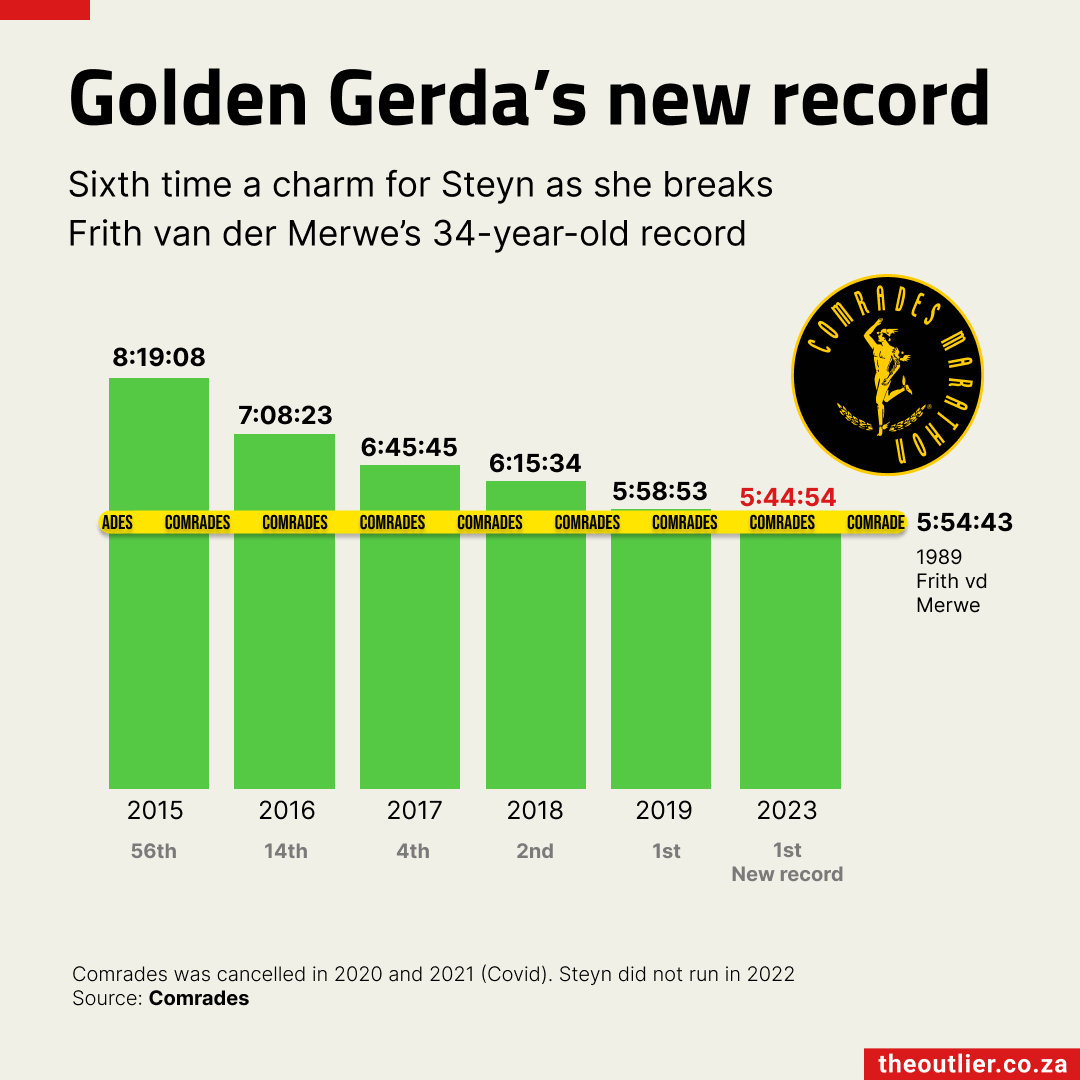
Comaraderie
South Africa’s marathon record of 2:24:03 was set by Gerda Steyn in Valencia in December last year.
She also holds the record for the Comrades Ultramarathon. Last year, she crushed Frith van der Merwe’s 1989 record by more than 9 minutes, breaking the tape at 5:44:54 for the 87.7km down run.
Steyn had already usurped Frith’s 30-year-old Two Oceans record of 3:30.36. Setting a new record in 2019, Steyn has broken it every time she has run the 56km race since. In April, she crossed the line in a time of 3:26:54.
Frith and Gerda have both won the Two Oceans and the Comrades in the same year.
31 May 2024 – Updated to correct distance of Comrades marathon and to clarify that Steyn and Van der Merwe are not the only two female runners to have achieved winning the Two Oceans and Comrades in the same year. There are, in fact, four women who have done this: Van der Merwe(1989), Russian Elena Nurgalieva (2004, 2012), Caroline Wöstmann (2015), and Steyn (2023).
